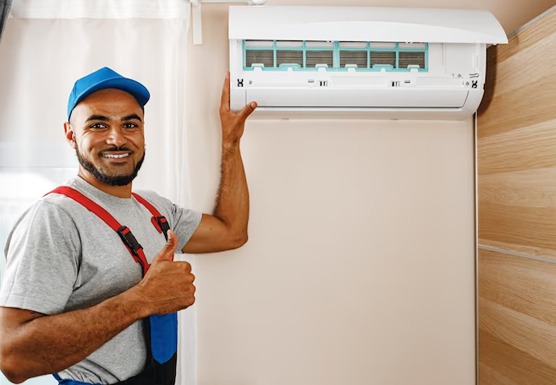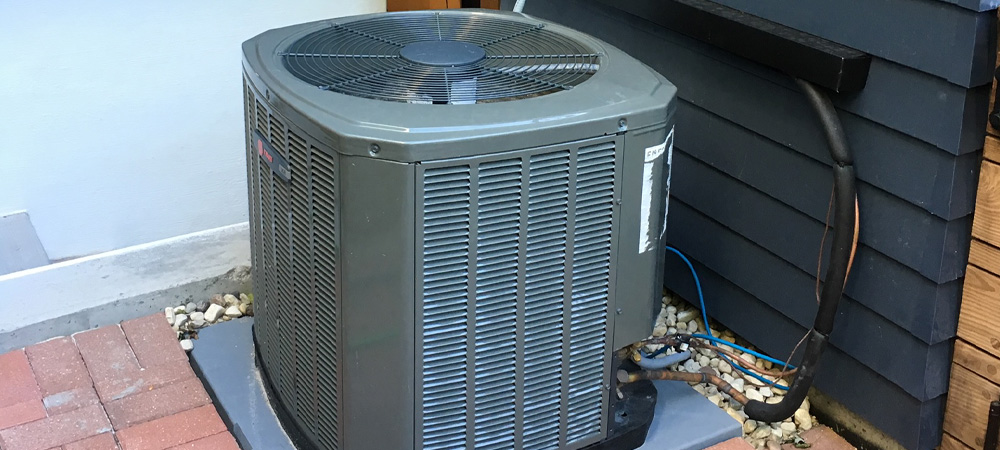The Buzz on Ac Repair
The Buzz on Ac Repair
Blog Article
Repair A/c: Professional Cooling System Repair Ensures Your Home Stays Comfy During The Hottest Days

Common A/c Problems
Have you ever felt that sudden rush of warm air simply when you anticipated a cool breeze? It's frustrating, isn't it? Numerous homeowners face this issue, frequently uninformed of what lurks below the surface area of their cooling system. Let's unravel the secret behind some of the most regular concerns that demand timely cooling repair work.
Why Will Not My A/c Cool Correctly?
When your AC system blows lukewarm air rather of a rejuvenating chill, it's a clear indication something's off. A clogged filter or low refrigerant levels typically play the villain here. Imagine trying to breathe through a headscarf on a hot day-- that's what an unclean filter does to your system. Ever questioned why your energy costs spike when the cooling drops? That's your air conditioning having a hard time more difficult to compensate for inefficiencies.
Weird Noises and What They Mean
Clicking, buzzing, or rattling sounds aren't simply noises-- they're cries for aid. A loose belt or a failing motor may be the offenders. One homeowner recounted how a consistent grinding noise turned out to be a worn-out compressor, conserving them from a total breakdown by acting rapidly.
Typical Concerns at a Look
| Symptom | Likely Trigger | Quick Fix |
|---|---|---|
| Warm Air | Low refrigerant or unclean filter | Replace filter, check refrigerant levels |
| Water Leaks | Obstructed drain line or frozen coils | Clear drain line, thaw coils |
| Unusual Sounds | Loose parts or motor concerns | Tighten parts, inspect motor |
Is Your a/c Cycling On and Off?
Short biking is more than an inconvenience; it can drastically minimize your system's life expectancy. This could signal a large system or a thermostat glitch. Have you noticed your unit switching on and off like a flickering light? Don't overlook it. It's a subtle tip urging you to call in the specialists before it develops into a costly disaster.
- Unclean filters and coils cause airflow problems.
- Thermostat breakdowns lead to irregular temperature levels.
- Electrical concerns can stop your a/c from beginning.
Necessary Tools for A/c Repair
Ever stood in front of a vast air conditioning unit questioning which tool will open the mystery? The right instruments can make all the distinction in between a fast fix and an unlimited afternoon of aggravation. A digital manifold gauge set isn't just an expensive gadget; it's the detective's magnifying glass in the world of refrigerant pressure. Its precision assists identify leaks or imbalances that a casual glance might miss out on.
When handling persistent or rusted elements, a quality tubing cutter is worth its weight in gold. It slices through copper pipes easily, preventing damage that could cause costly leaks. Have you ever attempted to flex copper tubing by hand only to wind up with kinks? Avoiding this needs specialized bending tools created to preserve the pipe's stability.
Tools That Specialists Swear By
- Air pump: Important for removing moisture and air from the system before charging refrigerant, ensuring ideal efficiency.
- Drip detector: A must-have for capturing unnoticeable refrigerant leakages that can trigger system inefficiency.
- Multimeter: Beyond measuring voltage, it's crucial for diagnosing electrical faults within the air conditioner's control system.
- Fin comb: A little yet magnificent tool that aligns bent condenser fins, boosting air flow and efficiency.
Pro Tips for Utilizing Air Conditioning Repair Tools
- Always confirm your gauge readings versus maker specs; even seasoned techs double-check to avoid expensive misdiagnoses.
- When utilizing a vacuum pump, ensure all valves and hose pipes are airtight; a minor leakage can ruin the evacuation process.
- Clean your fin comb regularly. Dust and gunk can cause it to snag, damaging delicate fins even more.
In the heat of summer, a malfunctioning compressor or blocked filter can feel like a ticking time bomb. However armed with the right tools and knowledge, the repair work ends up being less of an ordeal and more of a rewarding puzzle solved. Isn't it curious how a well-calibrated gauge or an easy leakage detector can change the entire outcome?
Step-by-Step Repair Process
Ever noticed how your cooling system starts to sputter, hardly whispering the cool breeze it once read more provided? The first relocation is a thorough diagnosis-- because thinking just lose time and resources. You may start by checking the thermostat settings, however in some cases the genuine offender hides much deeper.
1. Preliminary Evaluation and Diagnostic
Begin by powering off the system to prevent shocks. Open the gain access to panels and visually check for charred wires, stopped up filters, or ice buildup. A common oversight is ignoring the condenser coils; dust and dirt here can choke efficiency. Utilize a multimeter to check electrical components and verify if the compressor is receiving power.
2. Recognizing Refrigerant Issues
Does the system blow warm air? That's often a sign of low refrigerant levels or leakages. Experts use a manifold gauge set to determine pressure accurately. Keep in mind, overcharging or undercharging the system can cause permanent damage-- exact measurement is key.
3. Cleaning Up and Element Replacement
Often, a basic coil cleansing revives the system. Other times, it needs swapping out capacitors, contactors, or fan motors. Replacing these parts includes mindful disassembly and reassembly; avoiding steps can cause further breakdowns.
4. System Screening and Calibration
As soon as repair work are made, change the unit back on and observe its habits. Measure the temperature drop across the evaporator coil-- it must be roughly 15-20 ° F. If not, recalibrate the thermostat or check for air flow obstructions.
Expert Tips
- Prevent running the compressor without refrigerant-- this burns out the motor rapidly.
- Use a UV dye to locate elusive leaks; they're often concealed in hard-to-reach locations.
- Never neglect the drain line-- obstructions here can trigger water damage and system failure.
- Wear insulated gloves when dealing with capacitors; they keep charge and can provide a nasty shock.
Safeguarding Against Sudden Breakdowns
Have you ever wondered why your ac system sputters to a halt right at the peak of summer? The reality is, ignoring regular upkeep frequently invites unexpected failures. Dust, debris, and worn-out parts wage a quiet war inside your unit. Preventive upkeep is the secret weapon-- capturing small issues before they spiral out of control.
Expert Tips for Keeping Your Air Conditioner in Top Shape
Air Conditioning Contractor Jacksonville FLAir Conditioning Company Near Me Jacksonville FL
Air Conditioning Installation Jacksonville FL
Heating And Air Conditioning Repair Jacksonville FL
Air Conditioning And Heating Repairs Jacksonville FL
- Tidy or replace filters regular monthly: A stopped up filter chokes air flow, requiring the system to work overtime and accelerating wear.
- Examine coil fins: Bent fins limit air passage, just like a traffic congestion in your cooling system. Use a fin comb to align them carefully.
- Check refrigerant levels: Low refrigerant can trigger the compressor to get too hot, a precursor to costly repair work.
- Clear the condensate drain: Clogs here can result in water damage and mold growth, a covert perpetrator behind remaining odors.
- Examine electrical connections: Loose electrical wiring or rusty terminals typically trigger intermittent failures, a subtle warning indication.

When Was the Last Time You Listened to Your AC?
That faint rattling or uncommon hum might seem insignificant, however it's a precursor to larger mechanical woes. One summertime, a client pointed out a soft buzzing sound. A fast evaluation exposed a loose fan blade-- easy to fix, yet left unattended, it could have shattered the motor. Moments like these highlight the value of routine checks.
Quick Checklist for Seasonal Prep
| Action | Frequency | Why It Matters |
|---|---|---|
| Filter cleaning/replacement | Every one month | Maintains air flow and efficiency |
| Coil and fin assessment | Two times a year | Avoids air flow limitations |
| Refrigerant level check | Every year | Ensures proper cooling capacity |
| Drain pipes line cleaning | Every 6 months | Avoids water damage and mold |
| Electrical system inspection | Yearly | Prevents unexpected shutdowns |
Pro Suggestion: Beyond the Basics
Did you understand that lightly lubing the fan motor bearings yearly can extend their life-span? It's a detail often overlooked however essential. Shading your outdoor unit from direct sunshine can reduce the compressor's workload, subtly enhancing longevity. Keep in mind, the health of your air conditioner is a reflection of the attention you offer it before it shrieks for help.
Report this page